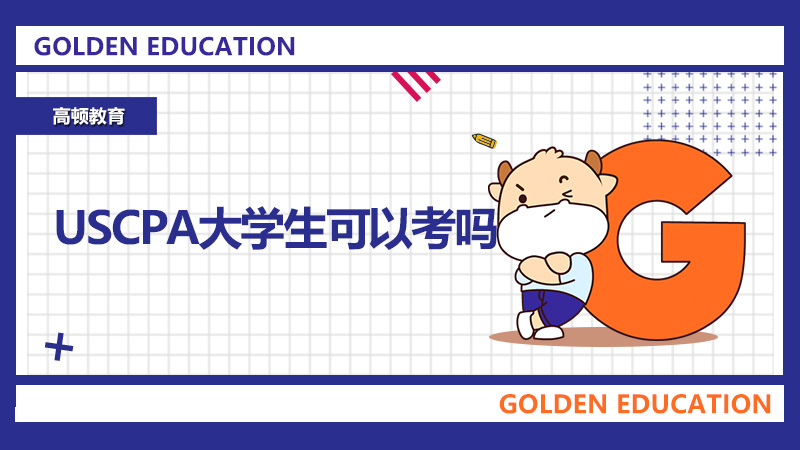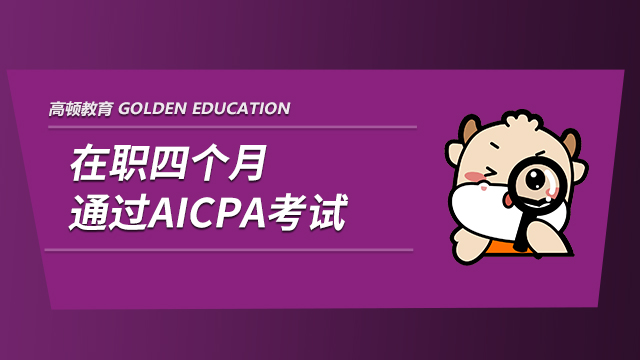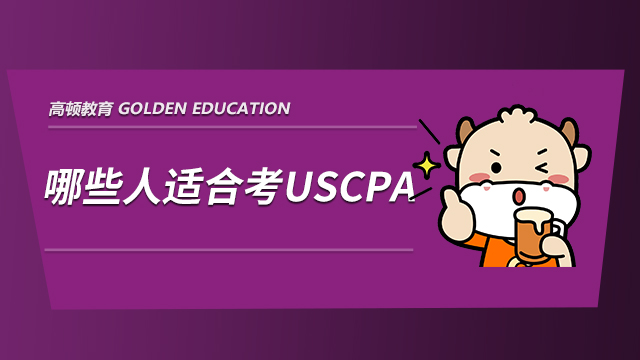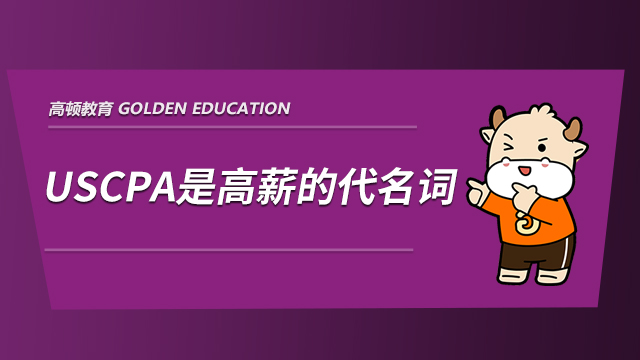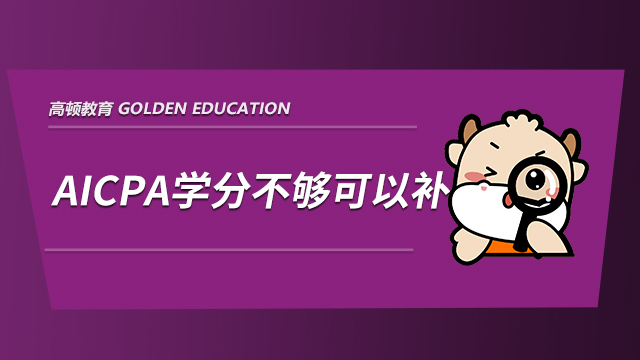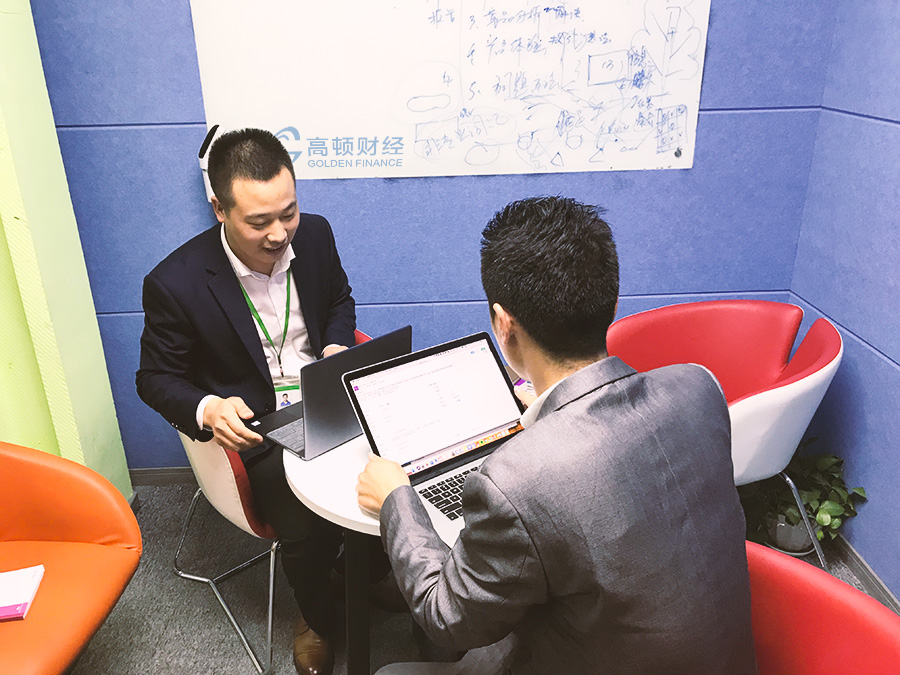AICPA Introduces New Disruptive Technology
来源:
高顿网校
2014-12-15
高顿网校USCPA责任小编在此为各位学员提供AICPA协会的相关热点资讯,仅供参考!
With the issuance of the AICPA’s Audit Data Standards, the Institute has introduced what promises to be a significant disruptive technology – data on demand. ADS were designed to bridge the gap between disparate Enterprise Resource Planning systems and apps (tools and technologies) that analyze a company’s data. Until now business information consumers had to rely on IT personnel to either develop customized extraction routines or develop applications within the ERP system to do what users were asking for. But, as many business information consumers know, that process is often expensive and time-consuming. All that is about to change.
What are ADS?
The vision behind ADS is to create data on demand. As a start, the AICPA has worked with companies, ERP vendors and internal and external auditors to understand what data they need. Use of the word “audit” is reflective not only of a major user of the data standards, but also of the quality of the data. Unlike some data standards, the ADS have built-in validation tests that ensure the data is complete, accurate and reliable. ADS, however, should not be thought of as limited to auditor use only. In reality, the standards enable any authorized non-IT user to access the data, including the companies’ managerial accountants, analysts and others.
ADS are expected to grow and evolve as systems change and as users’ needs evolve. The first release in this new ADS series included a set of base standards, as well as ones covering the general ledger and accounts receivable. These were designed with retail and commercial sectors in mind. The second wave was just released and includes the order-to-cash and the procure-to-pay processes. The Emerging Assurance Technologies Task Force of the AICPA Assurance Services Executive Committee is accepting comments on these subledger standards until February 28, 2015. Please send all feedback via email to Amy Pawlicki. Plans are underway to develop other significant business processes and then to “industrialize” these by tailoring them for industry sectors (such as financial services, health care, etc.)
How do they work?
Once the target is defined (i.e., the data standard), it can be readily mapped to any ERP system. After this mapping has occurred, the data extract process can be set up as a highly automated, repeatable process. Edit checks can be built in to ensure the data is accurate and complete.
To demonstrate how easy this process can be, Microsoft created a pilot program that uses a simple routine to extract data from all of its ERP systems. The routine can be run either at the click of a mouse or on a scheduled basis. Once the data is validated, it can be passed to a designated location. The data and its transmission is highly secure using encryption and password protection. Authorized users can then access the data whenever they want. Data is no longer locked away in a company’s ERP system, to which only a skilled IT professional holds the key.
Customers can design reports that comply with the Audit Data Standard, including all supporting transactional data and download them to Excel so that they can become the source for further data analysis. Users will be able to tweak them for their company and begin using them.
Companies can develop their own extractors. HP, a pioneer in this area, has developed a routine that extracts data from its SAP systems, loads it into a decision support database mapped to the ADS and presents validated data directly to the auditor. HP has reengineered a cumbersome process that used to take two weeks into a repeatable process that now takes a matter of minutes. As an alternative, data extraction companies can be used instead.
What’s next?
The obvious business case for ADS has been readily apparent to users outside the US. As a result, discussions are underway to adopt similar standards globally. In fact, it is expected that future standards may be a joint global initiative.
来源:AICPA China
版权声明:本条内容自发布之日起,有效期为一个月。凡本网站注明“来源高顿教育”或“来源高顿网校”或“来源高顿”的所有作品,均为本网站合法拥有版权的作品,未经本网站授权,任何媒体、网站、个人不得转载、链接、转帖或以其他方式使用。
经本网站合法授权的,应在授权范围内使用,且使用时必须注明“来源高顿教育”或“来源高顿网校”或“来源高顿”,并不得对作品中出现的“高顿”字样进行删减、替换等。违反上述声明者,本网站将依法追究其法律责任。
本网站的部分资料转载自互联网,均尽力标明作者和出处。本网站转载的目的在于传递更多信息,并不意味着赞同其观点或证实其描述,本网站不对其真实性负责。
如您认为本网站刊载作品涉及版权等问题,请与本网站联系(邮箱fawu@gaodun.com,电话:021-31587497),本网站核实确认后会尽快予以处理。
在线咨询热销
专业老师服务 限时优惠
点一下领资料
USCPA教材试读-REG
真题高频考点,刷题全靠这份资料
下载合集
USCPA-REG学习思维导图
梳理核心考点,一图看懂全部章节
下载合集
USCPA考试公式大全
突破计算瓶颈,节省考试时间
下载合集
USCPA备考 热门问题解答
- 美国注会考试考多少分及格?
-
uscpa一共有四门科目,每门考试的满分为99分,75分及格,但是这个75不是75%的正确率,不能被理解为百分比。
- uscpa一共几门几年考完?
-
uscpa总共考4门,一般单科成绩的有效期为18个月,大家需要在这个有效期的时间内,通过剩余的三门科目,否则第一门通过的考试成绩就作废,需要重考。因此,uscpa考试周期最长为18个月。
- uscpa一年能考几次?
-
NASBA和AICPA开启了连续测试期后,大家可以不受限制的全年参加uscpa考试。在uscpa的考试成绩公布后,如果大家发现自己没有通过考试,能够马上申请并参加该门科目考试,也不用再等待下一个考季才能申请重考。
- uscpa的含金量如何?
-
uscpa是美国正式的注册会计师国家资格,在美国拥有审计签字权,作为美国财经领域的三大黄金证书之一,在国内外都有着很好的知名度。很多外企招聘财务经理或财务总监岗位,都将持有uscpa证书作为优先录用条件。
严选名师 全流程服务
其他人还搜了
热门推荐
-
USCPA要大学毕业才能考吗,USCPA一定要毕业之后才能考吗 2021-03-29
-
2021年美国注册会计师含金量还会高吗?考的人多吗? 2020-10-30
-
在职四个月通过AICPA考试,是一种怎样的体验? 2020-10-23
-
AICPA已经确定在2024年对考试科目进行大改革! 2020-10-23
-
适合考USCPA的十类人,你是不是其中之一? 2020-10-23
-
年薪28万,一年拿下USPCA,这位小姐姐也太酷了吧! 2020-10-23
-
2021年想要考AICPA学分不够怎么办?可以补吗? 2020-10-22
-
涉足财务七八年,30岁坐稳财务总监,是怎样做到的? 2018-03-22
-
35岁以上的财务人都去哪了?可能在家养老··· 2018-02-09
-
财务人年终奖三大重灾区:互联网、金融圈、房地产“终极PK” 2018-02-09
-
年薪10万VS年薪30万:只差一张USCPA证书 2018-02-08
-
年薪30万的女财务经理:“如果能重来,和男朋友私奔,也不学会计” 2018-02-08
-
“为什么财务男追女生会半途而废”,原来其中有大秘密 2018-02-08
-
总结财务人面试时候8个“禁止”动作 2018-02-07
-
一个会计女硕士求职路:100份简历石沉大海 2018-02-06
-
一个会计女硕士求职路:100份简历石沉大海 2018-02-06
-
一位6年财务经验年薪百万的CFO捡到100元,会怎么做? 2018-01-31
-
关于USCPA报考流程及细节,你知道多少? 2018-01-29
-
财务人带什么年货回家?红酒腊肉?USCPA成绩单?辞职报告好了··· 2018-01-29
-
招聘一名会计:细心、听话、有耐心,女士优先男士止步! 2018-01-24
-
财务人被AI取代的恐慌心理,是因为机器人电影看太多 2018-01-23
-
一位佛系财务人给我诵了5句箴言! 2018-01-17
-
AICPA,在中国的发展前景 2017-11-21
-
AICPA证书对职业发展的帮助体现在哪? 2017-11-21
-
国内CPA通过率20%,美国注会通过率50%,科学么? 2017-10-23
-
问:USCPA煮着好吃还是炒着好吃?——报告:我不饿! 2017-10-20
-
重磅!3大误区有可能让你与年薪百万失之交臂! 2017-10-18
-
截止2017年,USCPA经历了哪些考试改革? 2017-10-17
-
高顿财经:美国注册会计师USCPA持证人在中国有何优势? 2017-10-17
-
爸妈说:别考研了,我们送你出国考USCPA! 2017-10-11
 更多服务
更多服务







